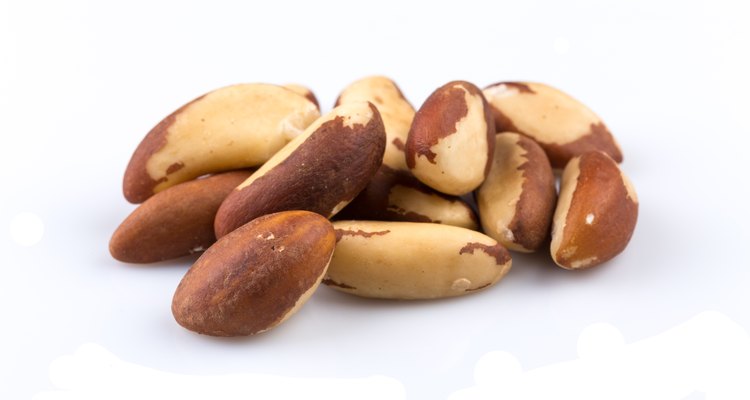
RTsubin/iStock/Getty Images
Selenium and silica are minerals naturally found in the soil and absorbed in all living things, including human beings, through the diet. They are also used in manufacturing items such as computers, glass, paper, paints, foods and medicines. Your body receives selenium and silica from the plant and meat products you eat. According to the Office of Dietary Supplements, the concentration of these minerals varies in foods because the amounts present in the soil ranges in different parts of the world, however some foods contain high amounts of silica and selenium.
Selenium Sources
Selenium is an essential mineral that is needed to maintain body health. It is naturally found in water and foods such as whole grains, Brazil nuts, sunflower seeds, shellfish, tuna, liver, brewer’s yeast and garlic. The National Institutes of Health notes that the average daily consumption of selenium in the U.S. is 125 mcg due to the wide distribution of selenium-rich foods available.
Selenium Uses
The University of Maryland Medical Center states that selenium is a potent antioxidant that helps your body fight against harmful toxins, pathogens and illnesses. It helps to strengthen your immune system, produce disease-fighting white blood cells and facilitates the function of thyroid hormones in your body. If you are deficient in selenium you can be at increased risk for atherosclerosis or hardening and narrowing of the arteries, high cholesterol, and heart attack. It also helps to relieve symptoms of joint inflammation due to rheumatoid arthritis, asthma and eye cataracts.
Silica Sources
Silica is also called silicon dioxide and is an important mineral that is needed only in trace amounts for your health. This mineral is naturally present in the water and soil and is high in foods such as bananas, green leafy vegetables, barley, whole grains, oatmeal and an herb called horsetail. The site Vital Health Zone notes that the daily recommended amount for adults is less than 30 mg, a dosage that is found sufficiently in foods.
Silica Uses
Silica is a mineral that is vital to the strength and structure of your bones and cartilage. The NHS.UK Food Agency notes that it provides tensile strength of the bones and supports healing of fractures and degeneration. This mineral is often found in supplements because it helps in the growth of healthy hair, skin, nails, teeth and blood vessels.
Related Articles

Zinc & Copper for Aging Skin

What Foods Provide Calcium D-Glucarate?

What Are the Benefits of BioSil?
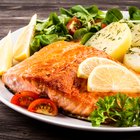
Food Sources of Phosphatidylcholine
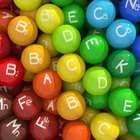
What Vitamins Help the Liver?

Merle Norman Ingredients

Essential Enzymes for Hair Growth

Benefits of Shea Butter and Coconut Oil ...

Strontium-Rich Foods
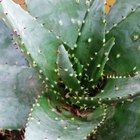
Aloe Vera & Seborrheic Dermatitis
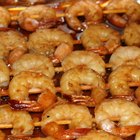
A List of Foods That Contain Choline

How Much Calcium Is in Peanut Butter?

What Are the Ingredients in Proactiv?

Can Supplements Reverse Gray Hair?
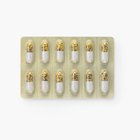
Foods Containing Copper Peptides

What Is Glycerine Used For?

Nutrition Information on Blueberries

Can Age Spots Be Reversed?
Selenium For Children
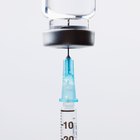
Dimethicone Hazards
References
Writer Bio
Noreen Kassem is a hospital doctor and a medical writer. Her articles have been featured in "Women's Health," "Nutrition News," "Check Up" and "Alive Magazine." Kassem also covers travel, books, fitness, nutrition, cooking and green living.
Photo Credits
RTsubin/iStock/Getty Images